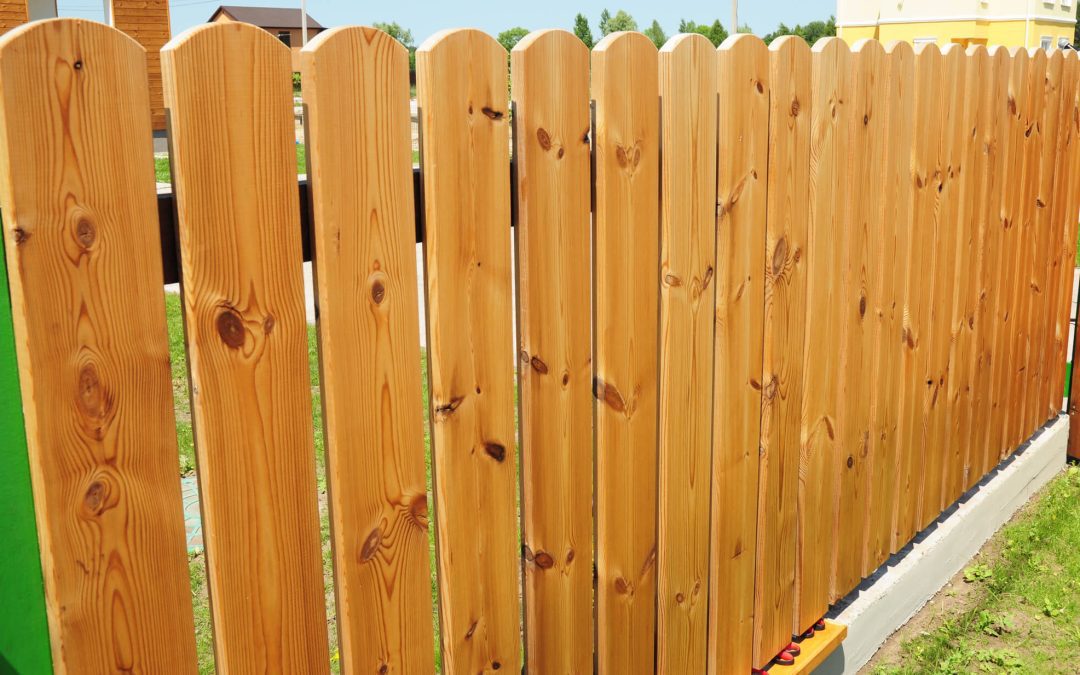Adding a fence around your home improves property value, privacy, security, and curb appeal. However, choosing the right fencing material for your needs can be tricky, with various types and styles on the market. Here are four fencing materials, their pros and cons, and how they compare. Whether you’re looking for something durable, budget-friendly, aesthetically pleasing, or low-maintenance, you can find a material that suits your home.
Common Types of Fencing Materials
Wood Fencing Materials
Wood fencing materials are popular due to their versatile design and warm, natural look. Fencing can be made from various types of wood, such as cedar, pine, redwood, cypress, and spruce. The pros of wood include affordability, ease of installation, and many customization options. Choose from different colors, stains, sizes, and patterns to match your preferences and surroundings. However, wood fencing has drawbacks, such as durability and maintenance requirements. Depending on your climate and local pests, wood needs regular cleaning, staining, sealing, and repair to prevent rot, warping, mold, or insect damage.
Vinyl Fencing
Vinyl is a modern synthetic option that imitates the look of wood. Vinyl fencing is made from polyvinyl chloride (PVC) and is resistant to moisture and pests. The pros of vinyl fences are their durability, low maintenance, and long-term cost-effectiveness. Unlike wood, vinyl does not require painting, staining, or sealing. Vinyl comes in various colors, textures, and styles. However, vinyl fences have limited customization options and can crack or yellow over time.
Pros and Cons of Chain-Link Fencing
Chain-link fencing is a classic and affordable option that offers visibility and security. It is made from galvanized steel wires interwoven into a diamond mesh pattern. Chain-link fencing is durable and will hold up against extreme weather. It’s easy to install and can last for decades with minimal upkeep. However, chain-link fences lack privacy and the aesthetic appeal of wood. Chain-link fencing can be noisy and may not be suitable for residential properties that prefer more privacy.
Aluminum Fencing Materials
Aluminum fencing is a sleek and contemporary option that combines strength and convenience. They are made from hollow, powder-coated metal tubes to resist rust, scratches, and fading. Aluminum fences are lightweight, easy to install, and require no painting, staining, or sealing. Aluminum offers better security and privacy than chain-link fencing without sacrificing visibility or airflow. However, aluminum has a higher upfront cost, limited design options, and vulnerability to bending or denting under heavy impact.
Choosing the right fencing material depends on your needs, budget, and preferences. Consider the pros and cons of each option, as well as their maintenance requirements, warranty, and local regulations. Consulting a professional contractor will help you make an informed decision and ensure your fence is installed correctly.
A Plus Inspections of Texas provides home inspection services to customers in Conroe, TX, and surrounding areas. Contact us to schedule an appointment.

